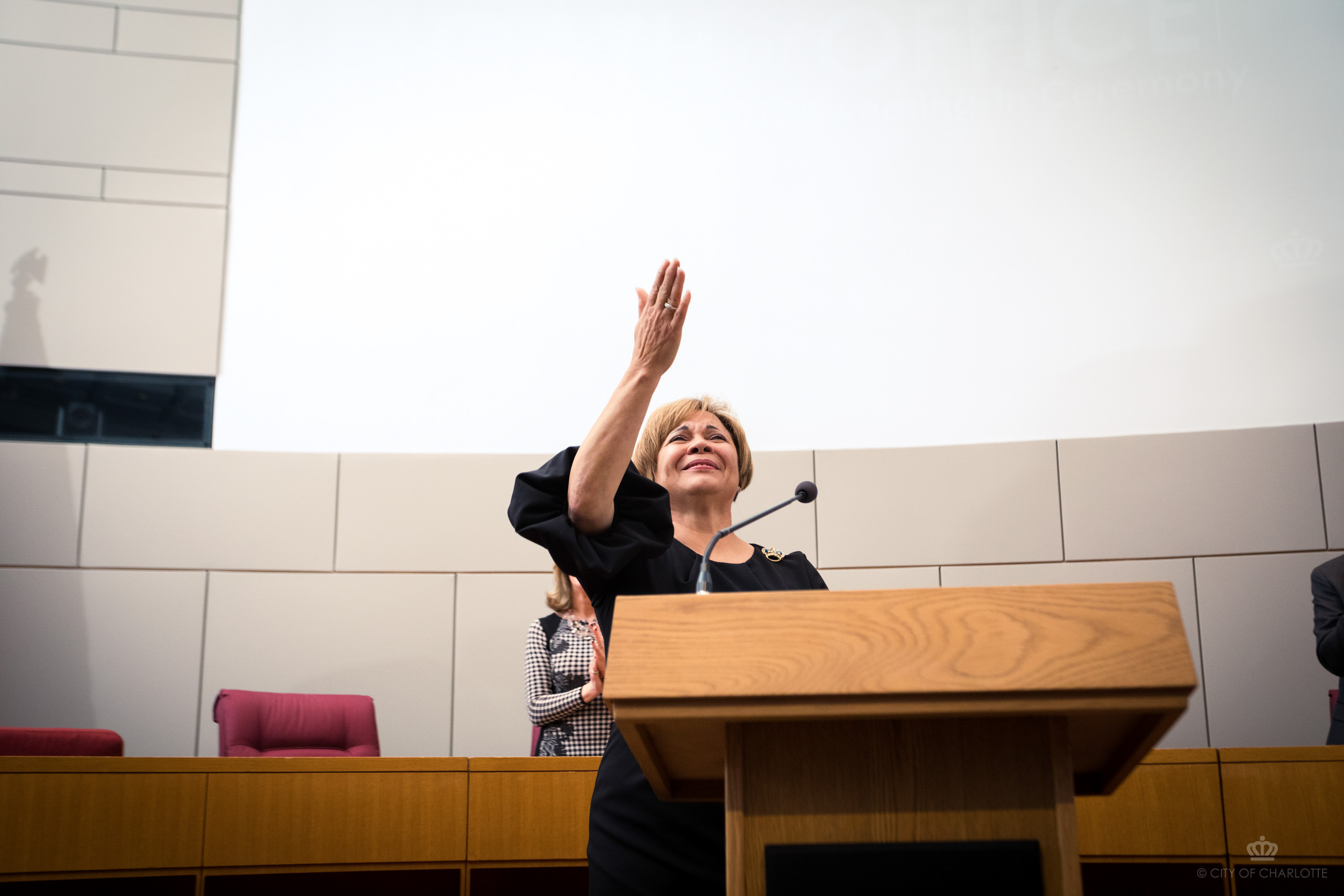
By Angela Lindsay
She did it. Last November, Vi Lyles became Charlotte’s first African-American female mayor after a hotly contested race—one which ended with a much more definitive defeat of her Republican opponent, Kenny Smith, than many residents and experts predicted. Blazing trails and defying the odds has been a hallmark for Lyles, from her childhood in the segregated South to her more than 40 years in public service. Now, she is entering new territory once again. But she is no stranger to leadership.
The Columbia native began her career as an analyst in Charlotte’s budget department, and later became the city’s budget director. She served as assistant city manager for the City of Charlotte from 1996 to 2004 and, in 2012, decided to run for Charlotte City Council, where she was elected to an at-large seat for two consecutive terms. In 2014, the council elected her mayor pro tem, and now, as mayor, she is poised to face the challenges that both a new administration for the city and a new position for an African-American woman bring. Below, she shares her thoughts on her historic win and her hopes for the future of Charlotte under her tenure.
What is the very first thing you want to accomplish as mayor and why?
Lyles: I want to build trust between the people who live in our city and local government. We need to engage with our citizens; determine how best to have a city where you can have a job, afford to live and feel proud of your neighborhood. Governance is about addressing the immediate challenges and creating a sense of community.
What do you feel is the most pressing issue facing Charlotte right, and how do you plan to address it specifically?
Lyles: Economic disparity is the most pressing issue impacting people who create and those who feel left out of opportunity. It affects the connections between jobs, housing and education. To begin to address this requires understanding the history of how it occurred; who benefited and who didn’t. We have to acknowledge our legacy of economic discrimination. Specifically, I will support and encourage policies and programs that remedy past actions and level the playing field. That would include minority participation in projects funded by tax dollars, development of job training programs and addressing the need for affordable housing.
Has the significance of your historic win set in yet, and what does it mean to you?
Lyles: It is an honor and a privilege to be the one to blaze the path for other women of color and to inspire young girls to know that they can achieve the highest level of elected office in the city of Charlotte. I am proud that we’ve achieved this milestone, but I also acknowledge that there are many more accomplishments in our future. I want to be known for what we do after our historic election. I am working to be the mayor who helps to surge our city into an era of greater economic vitality. and that starts with more jobs and better paying jobs.
What surprised you the most about being on the campaign trail?
Lyles: The willingness of the people who welcomed the debate on the issues; who understood the need for change and participated in our most basic and valued right — the right to vote.
What one thing did you learn the most about yourself during this journey?
Lyles: I kept to the words of former First Lady Michelle Obama: “When they go low, we go high.” I found strength in her quote, and it helped to get me through the very negative ads. I learned to be my authentic self and to accept that I could trust the voters to know who I am, because I live my authenticity every day.
What effect do you think the newly elected city council, which includes several millennials, will have on the city?
Lyles: The topic of millennials has been brought up frequently, and I understand that it signals a shift in what we’ve seen with past councils. But what makes the new members stand out more than their ages is the fact that they have demonstrated they are all leaders who deeply care about the future of this city. Together, with the veteran members, we have an opportunity to blend everyone’s unique perspectives to the benefit of those we serve. Each member of the council brings a point of view that, when forged as policy, will make our diverse communities stronger.
What do you think the election of so many millennials to the city council says about Charlotte, its residents and the direction the city is headed?
Lyles: Looking at the election data, the millennials were elected by every voter segment from every age group. So, it says Charlotte is willing to step up to embrace the growing population of millennials as leaders, that new ideas and solutions are welcome to address community challenges.
